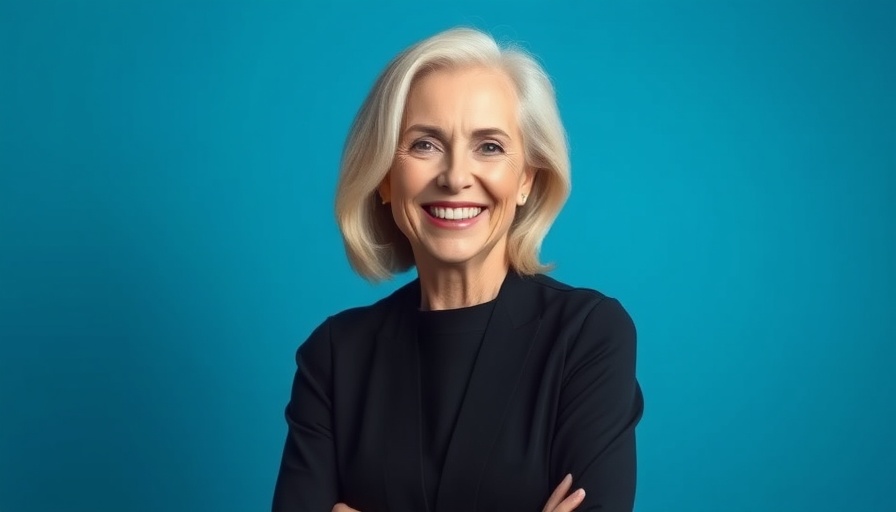
Patricia Clarkson's Compelling Portrayal of Lilly Ledbetter
Actress Patricia Clarkson has taken on the powerful role of Lilly Ledbetter in her new biopic titled "Lilly." The film chronicles the life of Ledbetter, a former factory manager whose relentless fight for equal pay led to the landmark Lilly Ledbetter Fair Pay Act—significant legislation signed into law in 2009 that aimed at addressing wage discrimination. Clarkson remarks that while the film addresses these themes, it isn’t simply about politics; rather, it’s a human story of struggle, perseverance, and victory.
Why Lilly Ledbetter's Story Matters
Ledbetter's journey is not just a personal one; it reflects larger societal challenges surrounding gender pay inequality. The timing of the film's release coincides with renewed conversations about pay equity, making it particularly relevant. With recent reports underscoring persistent wage gaps that women face, the movie's message resonates even more strongly today. Although Clarkson emphasizes the movie's personal narrative, the political implications are hard to ignore, especially as economic inequalities remain a pressing issue across the U.S. and beyond.
The Political Landscape Today: More Than Just a Movie
Clarkson's assertion that "Lilly" isn't political may resonate with some viewers, yet it cannot be overlooked how intertwined Ledbetter's story is with the current political climate. As debates rage on women's rights and workplace equality, the film arrives like a beacon, shining light on the challenges many still face. The political moment surrounding this release is marked by heightened awareness and advocacy around equal pay, with many social media discussions bringing the topic to the forefront of trending news. Amidst a tumultuous political backdrop, “Lilly” acts both as a reminder and a rallying cry for change.
Reflections from Critics and Audiences
The initial reception to the film indicates a positive response, particularly among those passionate about women's rights and labor issues. Critics are noting Clarkson's heartfelt performance as a driving force that resonates not only with audiences who sympathize with Ledbetter’s struggle, but also those who recognize the ongoing issues of wage equality today. The discussions on social media are alive with varying opinions, some claiming it’s a necessary cinematic reflection on the state of gender inequity, while others suggest it doesn't go far enough in addressing systemic issues.
Inspirational Quotes from the Cast and Crew
As the film garners attention, heartfelt remarks from cast members and crew reflect the collective struggles to bring this important story to life. Clarkson has expressed, "In telling Lilly's story, we are opening a dialogue that extends beyond the film itself. It is crucial that we continue these conversations in our everyday lives." Such sentiments echo the universal truth that while progress has been made, there continues to be a long road ahead for many who battle against systemic biases.
Future Perspectives on Wage Equality
The conversations ignited by “Lilly” could fuel interest and activism around wage equality as society begins to reflect on the lessons from the past. As discussions around diverse pay structures arise, it's hopeful that awareness gained through art will translate into advocacy and action. Educational campaigns and initiatives could arise from the momentum generated by the film, driving societal change in arenas such as corporate policies and government regulations.
Decisions You Can Make With This Knowledge
As audiences absorb the messages of “Lilly,” the movie serves as a powerful catalyst for personal reflection and social action. Viewers might find themselves questioning their workplace practices concerning pay equity or engaging in discussions about gender equality in more profound ways. By initiating conversations within their communities, moviegoers can take the spirit of Ledbetter's activism into their personal lives, ensuring that the fight for equality does not dim.
Final Thoughts: More Than Just a Film
In conclusion, Patricia Clarkson’s portrayal of Lilly Ledbetter is a bold affirmation of women’s rights within both cinema and contemporary dialogue. The film, though presented as a biopic, holds a mirror to current societal challenges, making it an important watch for anyone invested in the future of social justice and workplace equality. As "Lilly" joins the trending discussions today, it emphasizes the fact that every story contributes to the broader narrative of change. Don’t miss out on being part of this vital conversation; the time for equity is now!
 Add Row
Add Row  Add
Add 




 Add Row
Add Row  Add
Add 

Write A Comment